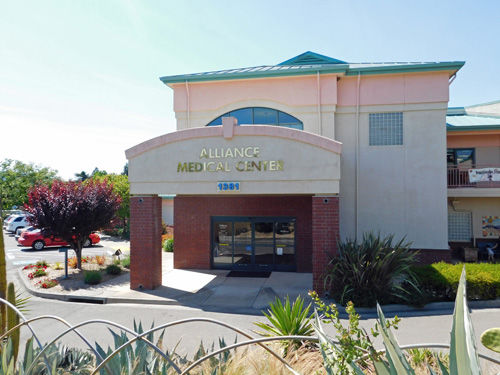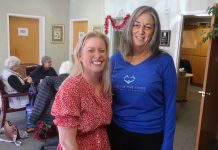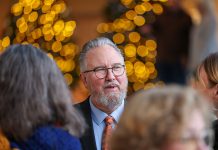Providers are embracing telemedicine
Healdsburg and Windsor-based medical provider Alliance Medical Center is one of a handful of local federally qualified health centers (FQHCs) to receive stop-gap funding from the federal CARES Act.
The funding that Alliance is set to receive totals $744,770 and will help bridge the gap in revenue it has seen as a result of COVID-19 and shelter-in-place orders.
“It will help us stay solvent while we develop the means to see our patient population,” Alliance CEO Joan Churchill said.
Churchill started at Alliance in mid-March, just as the county’s shelter-in-place order was announced. Since then, she said that the center has had to navigate a new world of telephone and televideo calls to patients, all while seeing 58% of the patients they usually see around this time of year.
“For the first time ever in the history of the U.S. health care system, (they) allowed all of us to provide as much care as we can through the telephone,” she said. “We quickly shifted the end of the first week to shifting everything to telephone visits. The world changed for us, the week of March 16, and with that we lost a lot of revenue and a lot of people didn’t have their health care visits.”
To compare, Churchill said that she looked at the first two weeks of April, “Compared to April 2019, we had 43% of the revenue from patient care and 58% of the visits,” she said.
Some of this drop she attributes to trying to get people used to a new way of communicating, and part of it is the result of not being able to offer dental services. While Alliance offers medical care, behavioral health care and wellness programs, around 40% of the patients they see are utilizing their dental care services, Churchill said.
“We don’t know when everything’s going to return back to normal, and most of the FQHCs have dental programs and we can’t start at all until the (CDC) says that we can, because of the aerosol,” she said, referring to the increased likelihood of virus spread when performing dental work, since COVID-19 particles can be found in aerosol.
On April 8, the CDC recommended that dental facilities prioritize urgent and emergency visits and procedures, but that they postpone everything else.
One of the silver linings of having to adapt to a different way of patient care, Churchill said, is having the opportunity to utilize technology — and the possibility of this experience opening doors to do telemedicine even after things go back to the “new normal.”
“What we’re finding is that people are loving it,” she said. “We have less of a no-show rate with behavioral health patients. We really think and we really hope that insurance (providers) will still allow patients to access care in all the different ways when, in the future, we’re back to the new normal.”
While overall patient counts are down, Churchill also thinks that Alliance may be seeing its patient demographics shift, with more recently uninsured folks using their services.
“This funding, successfully negotiated by Democrats in the recent CARES Act, is a huge win for our frontline health care workers fighting to protect communities from COVID-19,” Rep. Jared Huffman said in a statement about the funding. “Many of my constituents rely on community health centers for care, and this funding will support the testing, supplies, telehealth services and staffing all needed to ensure we can care for the safety and well-being of the community.”
For now, Churchill said that they’re applying for loans and doing “everything we can do to keep us solvent to provide care for our patients and the new patients who may be coming out to see us … all of us at FQHCs are the safety nets,” Churchill said. “We accept Medi-Cal, we accept Medicare, we accept people who may not be able to pay.”
“This community has been so supportive of our services and we’re so thankful for that,” she concluded.
As an additional note, Churchill said that Alliance is looking for donations from people who may still be making cloth masks, or donations of handkerchiefs.
“We have patients coming in with their families and they don’t have any masks,” she said, saying that they’d like to give people masks to wear, but have a limited supply of medical masks to hand out.









